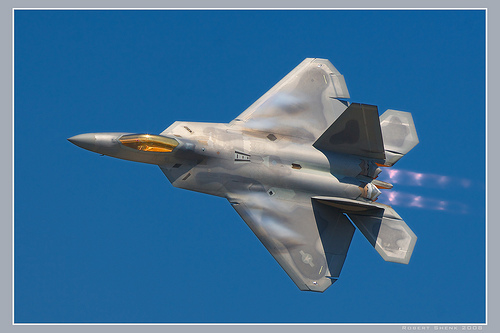What Does a 21st Century Military Look Like?

This New York Times op-ed on how the incoming administration should pare back air and naval capabilities in favor of adding 90,000 ground troops has elicited a number of smart responses, from Wired's Noah Shactman and Commentary's Gordon Chang, among others.
I think Michael Cohen has the best take against such an idea:
First, the U.S Navy and Air Force represent this nation's most significant asymmetrical advantages; we have absolute control over the global commons (namely the air and the sea). Diminishing America's advantage in these two areas is quite simply a bad idea. But, taking funds from the Navy and the Air Force and using it to expand the ground force. That is a terrible, head-shakingly bad idea.It is our large ground force that provides the most limited military advantage for the United States - and if anything, when deployed, can serve as a real liability to U.S. strategic interests. It is far more difficult and extraordinarily expensive to mobilize our ground forces (not to mention, quite difficult to get them out), they quickly become fair game for insurgents and guerrilla attacks (as we've seen in Iraq) and is a blunt instrument when scalpels are generally more effective in confronting the transnational and non-state challenges of the 21st century. Indeed our Navy and in particular our Air Force are often far better for dealing with these threats.
So much of the argument for boosting American ground forces seems to be wrapped up in the assumption that the U.S. needs to do more nation building. It seems to spring from the premise - mistaken, in my view - that what has led America astray in Afghanistan and Iraq has been our means, not our ends.
Looked at another way, the "failures" in Iraq and Afghanistan stemmed not from the original missions, which succeeded, but from the presumption that the U.S. was obligated to remain in these countries to "win the peace" by installing Western-approved political leaders and Western-approved political institutions. So now, corruption, sectarianism and authoritarianism in Iraq and Afghanistan are viewed as American failures, instead of standard operating procedure for Iraq and Afghanistan.
We face a genuinely thorny problem - particularly in Afghanistan, where al Qaeda and Taliban elements would no doubt flow back in as America withdraws. But the alternative - wage a costly, lengthy guerrilla war on behalf of a government that can't exert authority outside of the capital - won't actually protect us either. Radical Islam is an ideology. It is not bound by geography.
Photo by: Rob Shenk used under a Creative Commons license.



